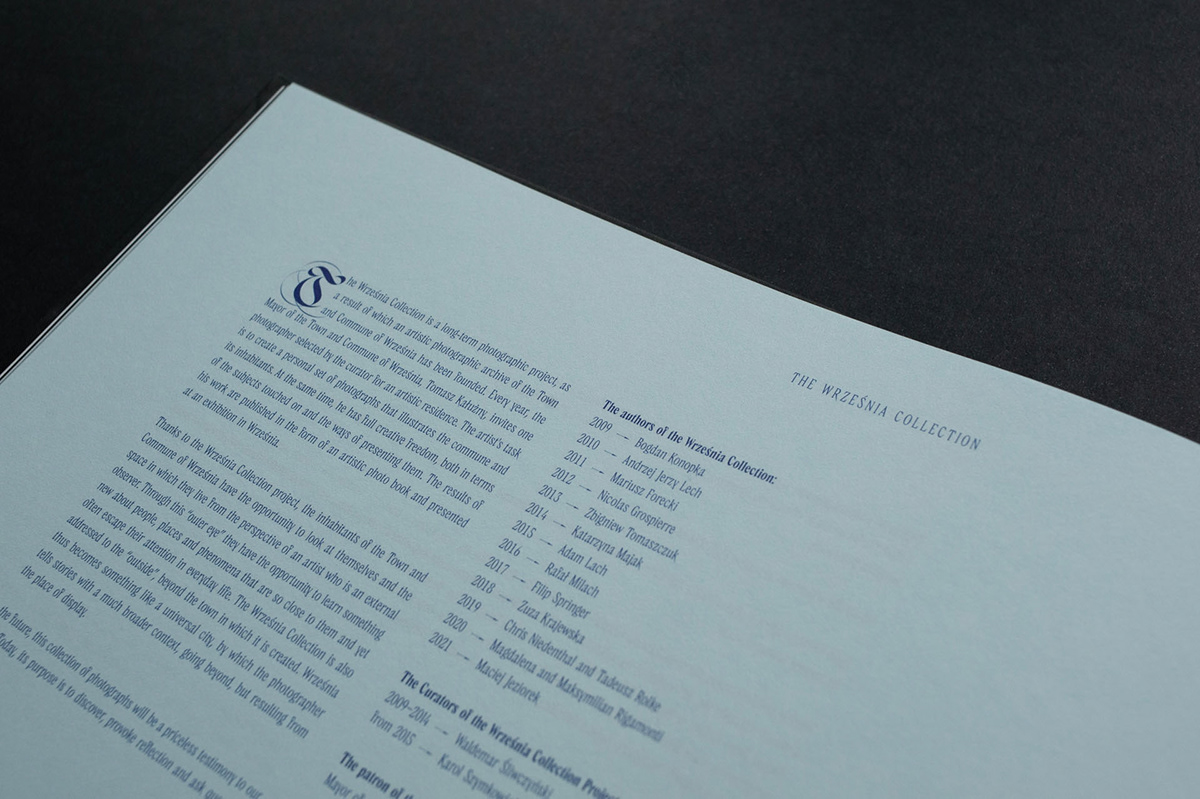T H E W R Z E Ś N I A C O L L E C T I O N

The only effective means to protect oneself from the “Black Death” that claimed millions of victims in 14th century Europe, was to flee. That recipe of sorts, dating back to the times of Hippocrates, was expressed in a then popular Latin saying: Mox, longe, tarde, i.e.: flee fast, far away, don’t return too soon. Those three adverbs, at the time, described the common attitude towards plagues which were believed to be caused by poisonous “pestilence air”. People did indeed flee from the places affected by the plague, often blindly and at the last moment, which resulted in spreading the plague even further.


Nowadays, globalization has made it possible for the COVID-19 virus to be transmitted very quickly and widely throughout the world. There are no places in the global village to escape to. Instead of fleeing, we have started seeking shelter in our own homes which give us a sense of security. However, in the times of the continuing struggle against new waves of the pandemic, not everyone around the world has the privilege of safe, if somewhat inconvenient for some of us, home isolation. Despite experiencing the world-wide pandemic, we as humans have not been able to overcome our flaws that seem to provide us with new, yet so familiar, reasons to flee. Wars, poverty, religious or political persecution. Each new wave of pandemic is followed by a wave of migration.












Although the act of escape is Maciej Jeziorek’s starting point, he is not so much interested in its reasons per se, but more in its implications or, to be more precise, in what we will leave behind in result of our escape. In order to discover that, he enters our homes, our safe havens, and starts working on the borderline of photography, painting and cataloging. He creates a collection.
Its initial layer is a set of still life images, where the author freely balances between Baroque painting and science-fiction aesthetics. An exaggerated chiaroscuro, mysterious light reflections, objects which are sometimes barely visible, depicted against a uniform dark background which forces the viewer to concentrate in the age when attention deficit is progressing. The peculiar nature of the photographs as well as their superficial blurriness determine the need for a closer, longer and more attentive look. Thus not only are we looking at catalogued objects but we can actually see them. We can trace references to the symbolism of the previously mentioned Baroque. Symbolism also surfaces in the set’s second layer which consists of shots of house interiors. Unfinished, sometimes barely touched meals, the remains of an interrupted feast… those symbols are all but obvious. The author confronts us with the reality of ultimate escape.
We’ve had to re-define many aspects of our lives as a consequence of the pandemic. In particular, the conviction of living in peaceful and safe times, so prevalent in the Western world, has turned out to be obsolete. Maciej Jeziorek invites us to reflect on what we take possession of, what we produce, what we gather and surround ourselves with, and what we will have to leave behind. And, in the end, what we will return to. At a time when we are about to face new threats, such as climate change, he encourages us to explore a broader, selfless context. So another escape seems inevitable, even though for now, it is going to be an escape from responsibility.




















→ February 24, 2022
Mox, longe, tarde.
Mox, longe, tarde.
→ April 2022
It turns out that the grim reality has preceded the book's publication. It's now quite impossible to view these photographs without bringing up associations regarding the current situation in Ukraine, without thinking of the millions of people who are fleeing from the war, leaving their whole lives behind. That was supposed to never happen again, at least not here, not in Europe. We perceived the pandemic in more or less the same way: as an outdated, long gone by threat that we would never have to face again.
We can admit today that thanks to the joint efforts of all of humanity, we have managed to succeed, not so much in defeating but rather in getting used to a previously unknown virus. Russia's aggression against Ukraine reminds us, however, that man's most formidable, and so far undefeated enemy, is still the man himself.

The Września Collection (Kolekcja Wrzesińska) 2021 Maciej Jeziorek
First edition / Września 2022
Concept and photographs → Maciej Jeziorek / Napo Images
Marbling → Hanna and Tadeusz Jeziorek
Curator → Karol Szymkowiak
Design and layout → Andrzej Dobosz
Pre-press → Tomasz Kubaczyk
Translation → Tomasz Bałdowski
Corrections → Urszula Kifer
Publisher → The Town and Commune Office of Września
Print run → 500 copies
Printing and binding → Petit Lublin
ISBN → 78-83-917850-4-1






